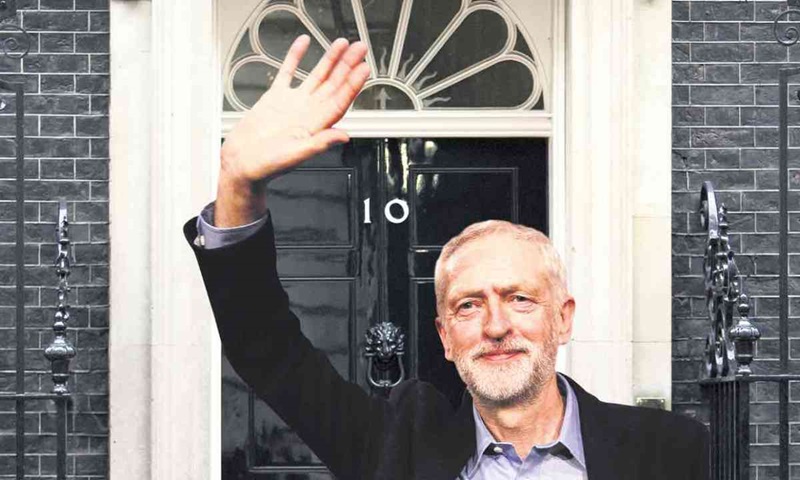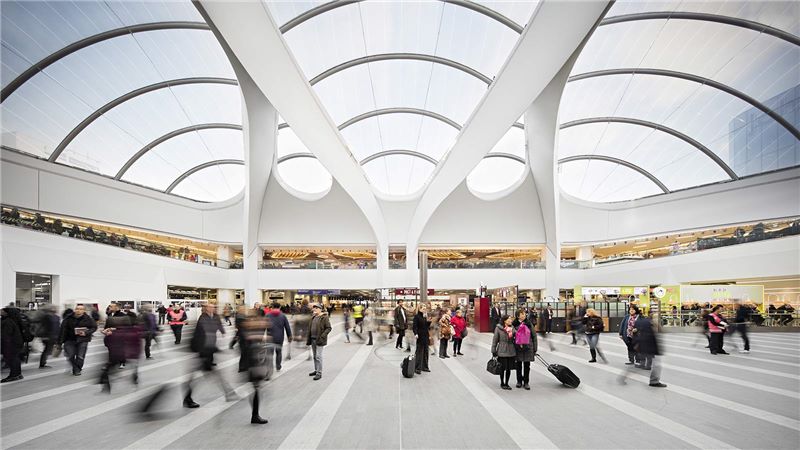Prime Minister Corbyn - an unlikely boon for the construction sector?
Last night’s shock election result is now causing many to consider what only a few weeks ago looked impossible: Jeremy Corbyn becoming our next prime minister.
Although it’s still unlikely we’ll see him take office, our industry like to plan and think things through – so Mace’s Tom Lees has taken a look at how he could form a government; and what a Corbyn-led administration might mean for the construction sector.
It’s first important to look at who Labour would form a government with. For Corbyn to put together enough MPs to form a government, he would need to build a ‘progressive alliance’ of parties committed to a softer Brexit and higher public spending. From last night’s results we can see that he would need the support of both the SNP’s 35 MPs and the 14 Lib Dems.
Setting aside the short-term impact this arrangement could have on the markets and investment confidence – and the long term impact of a largely inevitable deal on another Scottish independence referendum – it is possible to take a fairly good stab from their policy positions at the likely implications for construction.
The most obvious immediate issue is the amount of public spending available. Both Labour and the SNP have pledged to spend vastly greater sums of public money than the Conservatives would. Labour’s manifesto goes as far as pledging that £250 billion would be borrowed to invest in infrastructure over the next 10 years, including in energy, housing and transport construction projects.
This sort of spending would turn on the taps for major investments in big projects, developments and public works, which are the lifeline of the construction sector. But what about the specifics?
As well as renationalising the railways (which is uncosted in their manifesto), Labour would pledge significant sums of taxpayer money to their development. Their manifesto is committed to the building of HS2 and would connect it to a ‘Crossrail for the North’. The party also says it is “fully committed to Crossrail 2”. The SNP have also committed to HS2, connecting it Scotland and working with the UK Government to improve cross-border rail links more generally.
Heathrow expansion should also go ahead in a Corbyn-led government. While he has been opposed personally to the project in the past on environmental grounds, his position has softened of late and he has pledged to offer MPs a free vote on the issue. We know the House of Commons largely supports the project, including a majority of current Labour MPs. The SNP have been more positive about Heathrow and pledge in their manifesto to securing more international flights to and from Scotland after Brexit.
The future of nuclear plant construction could be less certain, however. Labour have been luke warm of late towards the issue, but their manifesto then appeared to welcome development of nuclear power, albeit without specifics. The SNP, though, reaffirmed their strong opposition to Hinkley Point, claiming it will result in “huge costs for taxpayers and consumers”.
The Lib Dems have a more mixed appreciation of these major public projects, supporting ones like HS2 and Crossrail, but opposing Heathrow, for example. The reality for them, though, is that with only 14 MPs they are unlikely to hold major sway over these decisions in a hypothetical coalition.
Of much greater consensus, and more of the headline-grabbing attention, is construction of housing developments. Corbyn commits to building over 1 million more homes, with at least half for social rent. Within this, and by the end of the next parliament, he wants to see 100,000 council and housing association homes being built each year. The SNP and Lib Dems have also outlined clear ambition for much more housebuilding.
Brownfield development is likely to be the principal means to deliver this, and Labour have also committed to the creation of entire “new towns”. And as part of the infrastructure underpinning this development, the party say they would deliver “universal superfast broadband availability” by 2022.
Skills is another key area for the construction sector, especially in terms of being able to staff projects with adequate numbers of qualified construction workers post-Brexit. Labour has said it will increase numbers and funding of those on technical education courses and vocational apprenticeships, and has not set an immigration number target. The SNP are in a similar place though want a devolved deal on immigration.
All in all, a Corbyn-led government appears on paper at least to present a huge boon for the construction sector. There would be much more funding, so more projects and many more construction jobs. However it is for others to decide whether these plans can actually be funded by the measures proposed in Labour’s manifesto.
Before we get too excited by all this, however, it is important to remember it is still pretty unlikely. Last night’s result is still much more likely to lead to a minority Tory administration.
Nevertheless, if politics of recent years has taught us anything, it is to expect the unexpected. Jeremy Corbyn being Prime Minister of an unlikely alliance of several parties doesn’t sound like a likely outcome, but as every business knows, it is prudent to prepare for every scenario…because you never know, it may just happen.
This article was updated on Friday 9 June 2017 to reflect the results of the General Election.
















